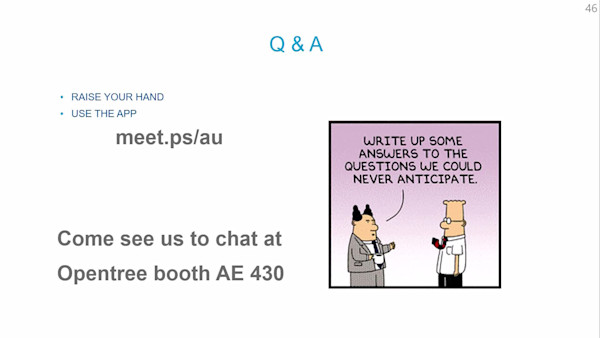Description
Key Learnings
- Discover how diversity can successfully impact corporate culture.
- Compare different journeys and better understand how women navigate the world of BIM and how to navigate that world as a woman.
- Learn about how the evolution of technology enabled us to positively impact the diversity and inclusion of our workforce.
- Learn about creating a culture to build confidence and support equality to reshape the way we work.
Downloads
Tags
Industries | |
Topics |

From Design to Digital Twin: Building Indoor GIS with CAD and BIM Data

Using Forge to Connect BIM to the Internet of Things



